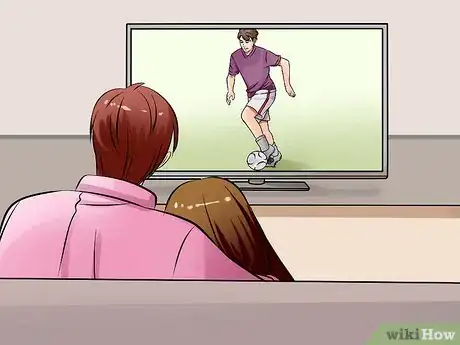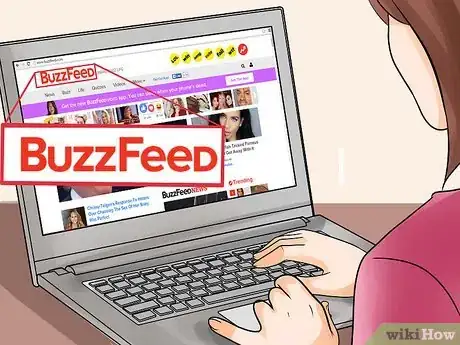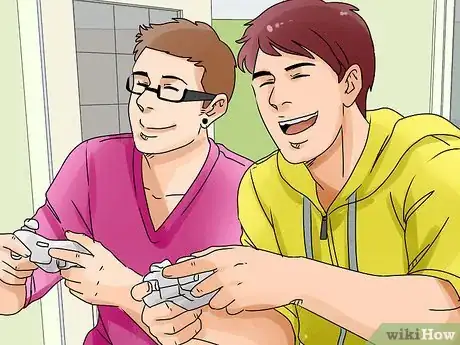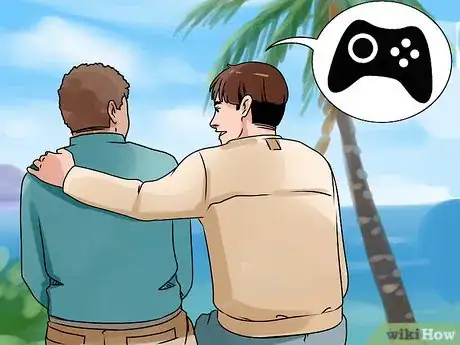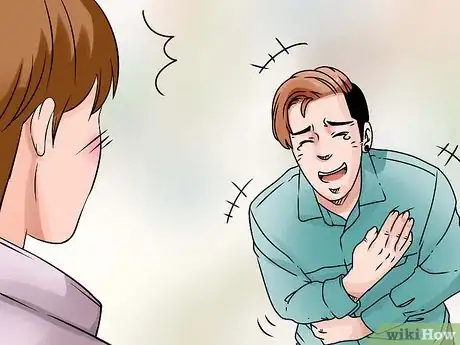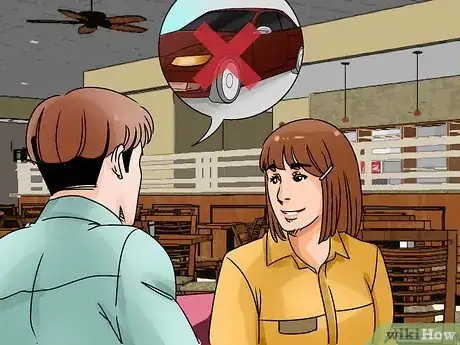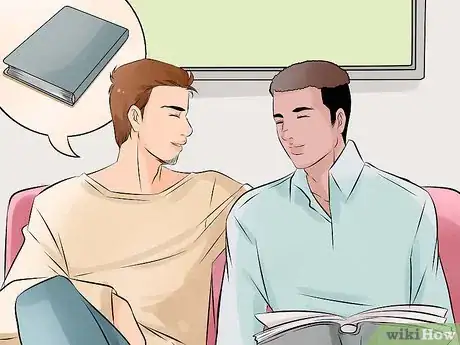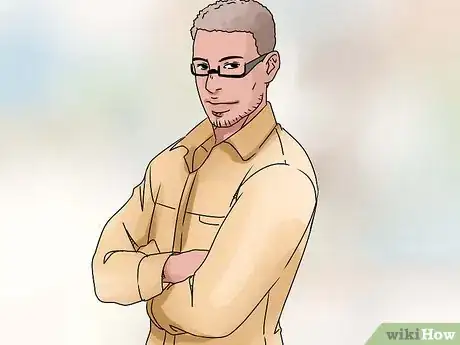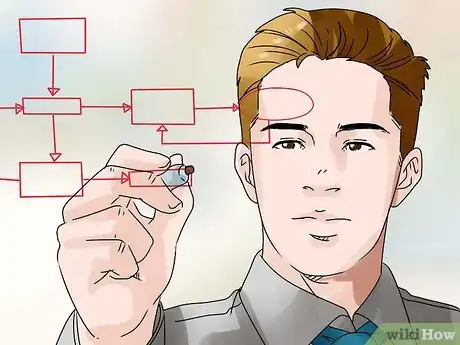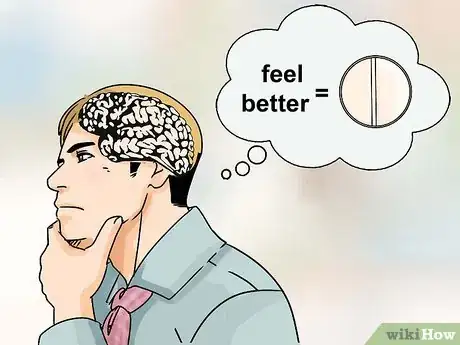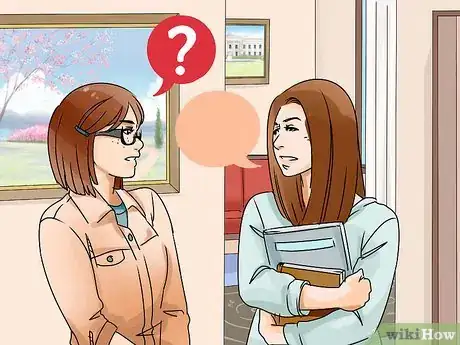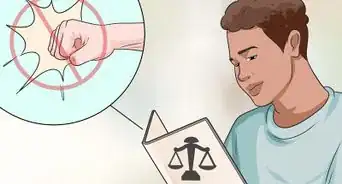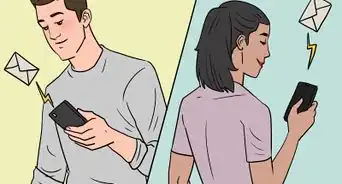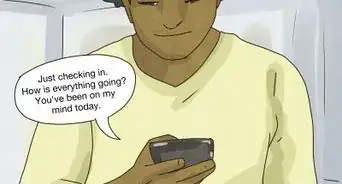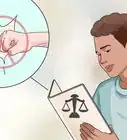This article was co-authored by Nicole Moshfegh, PsyD. Dr. Nicole Moshfegh is a Licensed Clinical Psychologist and Author based in Los Angeles, California. Dr. Moshfegh specializes in multicultural competence and treating patients with mood and anxiety disorders and insomnia. She holds a BA in Psychology and Social Behavior from The University of California, Irvine (UCI), and an MA and Doctor of Psychology (PsyD) from Pepperdine University. Dr. Moshfegh completed her predoctoral internship and postdoctoral fellowship at The University of California, Los Angeles (UCLA). Additionally, she is a member of the American Psychological Association, National Register of Health Service Psychologists, Los Angeles County Psychological Association, and Collaborative Family Healthcare Association. Dr. Moshfegh is also the best-selling author of "The Book of Sleep: 75 Strategies to Relieve Insomnia".
There are 11 references cited in this article, which can be found at the bottom of the page.
This article has been viewed 74,308 times.
There are plenty of good reasons why you might want to distract someone. It's possible a friend of yours has recently gone through something difficult and needs to get their mind off things for a while. Distracting someone can be easy or tough depending on the person and situation you find yourself in. While you'll ultimately need to come up with a solution that best suits your own circumstances, there are lots of potential ideas out there that you can use to your own advantage.
Steps
Distracting Through Action
-
1Go for a walk.[1] [2] A walk through the woods is one of the most recommended "healthy distractions". If you suggest doing it with a friend, it opens up a lot of opportunities to talk and bond. Being out in the open together can be a lot of fun, and the experience of simply being outdoors is great for the soul.
-
2Do breathing exercises together. A lot of "healthy distractions" revolve around meditation and therapeutic breathing. Sitting someone down and guiding them through a meditation session is a good thing to try, especially if you're trying to distract your friend from physical pain.[3] By focusing your friend's mind on something as arbitrary as breathing, their brain will have less resources available to focus on the thing that needs distracting from.
- Sit down and close your eyes. From there, you and your friend should focus on taking long, unrushed breaths, focusing in on the sound and the sensation of inhaling.[4]
Advertisement -
3Watch a show with them. Watching a good TV show is a great thing to do if you're sick or in need of a good distraction for a while. In particular, "binge watching" shows multiple episodes at a time helps someone become more and more invested in the programme they're watching. Media outlets like HBO are chock-full of great shows to watch in this fashion. Because TV shows favour a serialized format, it's easy to throw yourself into a show.[5] If you need to distract someone, suggest the two of you watch a show together.
- Popcorn and snacks are a therapeutic addition to an activity like this as well.
- Check in with your friend and make sure they're up to do the activity. They might need some time by themselves, and that's okay![6]
-
4Link them to clickbait. Clickbait refers to a type of online web article that serves little purpose other than to distract. Sites like Buzzfeed and Clickworthy specialize in this sort of aggregated media. Although clickbait is often worthless and should be avoided, it's a perfect thing to link or show someone who needs their mind drawn away from real-world matters. Some clickbait even self-refers to its role as a potentially therapeutic distraction.[7]
-
5Play video games together. Video games are a great way of stepping out of your own life for a time and jumping into another world. There are lots of video games out there that are best when played together. Video games require a lot of concentration. In this manner, they're arguably even better than a TV show for the sake of distracting someone.
-
6Take your friend out for a wild night. Although drinking to excess or partying isn't recommended as a long-term way to be distracted by something, the loud stimulation of a night out on the town can be perfect for distraction. Make sure your friend is likely to have a good time, and try to stay clear of anything that might remind him of whatever it is he needs distracting from.
- Alternatively, stay in and share a comforting meal.[8]
Distracting Through Talk
-
1Interact with them via technology. Technology has been proven time and again as the number one distraction in the modern world.[9] Although this is usually thought of as a bad thing, it can work to your advantage if you're trying to keep someone distracted.
- For instance, you should try linking them to a funny video on YouTube.
- Text messages are a great distraction.
- There are plenty of online games you can recommend someone play.
-
2Tell a good story. Everybody loves stories. Stories allow someone to step out of their own lives for a short while and experience life in someone else's shoes. A funny anecdote about your own life can be all you need to effectively distract someone. Humour is important in a story, especially if you're trying to get the other person's mind off of something serious.[10] A good story can be found just about anywhere in your life. It's usually best if the story actually happened to you. That way, the interaction will feel more like a bonding experience between the two of you.
- Try to keep your story to the point. Offer details when you think it helps the person get a better idea of what's going on, but make sure you don't stay in one place for too long.[11]
-
3Amuse him with humour. While humour and laughter are a great source of enjoyment at the best of times, they are also the best possible coping mechanism. It is highly recommended as a healthy distraction, as it's simple, effective and usually inexpensive.[12] Depending on the existing relationship you have with the person you're trying to distract, humour may come easily o may be more difficult.
- If you're really stumped for humour, you might try reciting a few jokes beforehand. That way, if nothing comes naturally to you, you'll at least have something to try with.
-
4Avert the conversation from possible triggers. If you're trying to distract someone from something in particular, you need to be wary of bringing an association of that thing to the person's mind while you talk. While you shouldn't let your caution get in the way of proper conversation, it's recommended you keep the thing you're distracting him from in your mind while you talk. Try to think of things that may trigger an association in that person's mind and avoid them accordingly.[13]
- For example, if your friend was recently in a traumatic car accident, you may want to avoid talk of anything automobile related, even if it's something as innocuous as going to a drive-in movie.
-
5Recommend a good show or book. Chances are you won't be able to give your undivided attention to someone over a longer period of time. Recommending something your friend should check out on his own helps to open up a window for him to distract himself on his own time when you're not around. Shows and video games are great distractions, but books are great too. The mind is easily distracted if it's being bombarded with interesting material.
Keeping Someone's Attention
-
1Be confident. Confidence is a necessary part of keeping someone's attention for a longer period of time. If you struggle with having confidence in yourself, it will no doubt manifest itself in the way you act and talk. Having confidence is essential in succeeding with most social interactions. Make a habit of stomping out any negative thoughts you may have towards yourself, and try to replace them with positive thoughts. Even if you don't believe the positive self-affirmations at first, simply thinking them will have a noticeable effect on the way you feel.[14]
- Make a list of the things you like most about yourself. Now's not the time to be modest! Whether it's something you like about yourself or something you've done you feel proud about, there's already a ton you could fill up a page with. At the end, you can look at the list and know you have reasons to feel confident.
- Comparing yourself with other people won't get you anywhere. If you really want to distract someone else, you can't be thinking negatively about yourself while you're at it.
-
2Switch up your tactics. Eventually, even the best distraction will run out of steam. To keep up with distracting someone, your best bet is to switch up your plans. If you've been doing something like playing a video game for example, it's a good idea to do something else once you think the other person is beginning to get restless. Even the most enjoyable activity will become less stimulating over time.
- You can always go back to something that really worked at a later point if the distraction needs to span the course of days.
-
3Understand the placebo effect.[15] There has been a lot of research done into the role of placebos and 'false distractions'. The power of belief is strong, and a person's perception can be changed if they are led to believe in something. Understanding how powerful and therapeutic a distraction can be a strong motivation if you're trying to help out a friend.
- By understanding the role of placebos, you should also know that they don't work if the person is aware that you're consciously trying to distract them. If they think you're saying or doing something purely to keep their mind occupied, it's not likely to be successful.
-
4Catch up on the issue later on. Even a while after the need for a distraction has ceased, it's a good idea to check back and see what the person's experience was. Sometimes, you may find that the other person was simply buying into your activity because he thought it was what you wanted. Other times, you'll find the distraction worked. It's not recommended to tell the person you did those things purely with the intent of distraction, but it is good to reflect on the experience and whether you think it worked out.
- You should approach a follow-up carefully. Without making it obvious that you were intentionally trying to distract the person, you could say something along the lines of "How do you think you managed in hindsight?" Don't reference yourself in any part of the question. This will make it seem like you had some active role to play in the distraction.
Community Q&A
-
QuestionWhat if I'm trying to distract my parents so that I can sneak out?
 Community AnswerInstead of sneaking out, try creating an alibi. Say you're going to your friend's house for a sleepover or homework project or something, and make sure your friend is prepared to cover for you. That way you won't have to sneak out and worry about getting caught. If you really have your mind set on sneaking out for whatever reason, then you need to be 100% sure of the risks. It's easier to sneak out during the daytime because your parents will be distracted easier.
Community AnswerInstead of sneaking out, try creating an alibi. Say you're going to your friend's house for a sleepover or homework project or something, and make sure your friend is prepared to cover for you. That way you won't have to sneak out and worry about getting caught. If you really have your mind set on sneaking out for whatever reason, then you need to be 100% sure of the risks. It's easier to sneak out during the daytime because your parents will be distracted easier. -
QuestionHow do I know if someone is distracted?
 Community AnswerThey should be staring into space blankly or focusing intently on something or someone other than you.
Community AnswerThey should be staring into space blankly or focusing intently on something or someone other than you.
Warnings
- Distracting someone isn't a good thing to do for too long. Distraction is usually seen as a bad thing, and it can get in the way of being productive and worthwhile.⧼thumbs_response⧽
- Sometimes, it's going to be impossible to distract someone. If someone is dead set on thinking about or doing something, you might anger someone for attempting to get in their way. Keep appropriateness in mind if you want to try and distract someone.⧼thumbs_response⧽
- Avoid using drugs and alcohol as a distraction. These are often go-to distractions for many people, but they aren't helpful in the long run.[16]⧼thumbs_response⧽
References
- ↑ Nicole Moshfegh, PsyD. Licensed Clinical Psychologist. Expert Interview. 5 August 2021.
- ↑ https://www.psychologytoday.com/blog/where-science-meets-the-steps/201404/what-is-healthy-distraction
- ↑ http://www.calmclinic.com/anxiety/treatment/relaxation
- ↑ http://www.meditationoasis.com/how-to-meditate/simple-meditations/breathing-meditations/
- ↑ http://editorial.rottentomatoes.com/article/11-tv-shows-from-2014-you-should-bingewatch-right-now/
- ↑ Nicole Moshfegh, PsyD. Licensed Clinical Psychologist. Expert Interview. 5 August 2021.
- ↑ http://www.buzzfeed.com/chelseamarshall/adorable-things-to-take-your-mind-off-the-world-imploding
- ↑ Nicole Moshfegh, PsyD. Licensed Clinical Psychologist. Expert Interview. 5 August 2021.
- ↑ https://www.psychologytoday.com/blog/rewired-the-psychology-technology/201204/attention-alert-study-distraction-reveals-some
- ↑ http://ca.askmen.com/money/how_to_400/443_how_to.html
- ↑ http://ca.askmen.com/money/how_to_400/443_how_to.html
- ↑ https://www.mentalhelp.net/articles/distraction-and-humor-in-stress-reduction/
- ↑ https://www.mentalhelp.net/articles/distraction-and-humor-in-stress-reduction/
- ↑ http://zenhabits.net/25-killer-actions-to-boost-your-self-confidence/
- ↑ http://www.livescience.com/18361-distraction-reduces-pain.html
- ↑ https://www.psychologytoday.com/blog/where-science-meets-the-steps/201404/what-is-healthy-distraction



